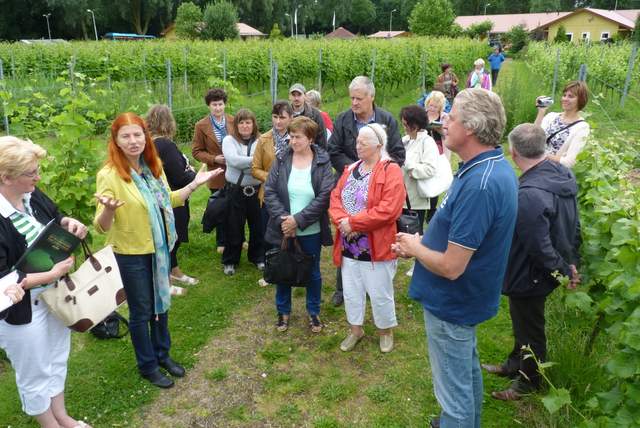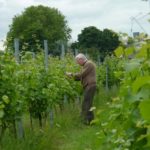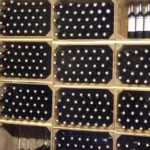De Amsteltuin
Tieke Roosen and Jan Schake
Target group: The elderly, adults with autism, schizophrenia or other mental problems
Type of care: Day care
Farm: 1.5 ha winery
Income sources: 55% of income from care activity, 5% from care activity and 40% from services
| De Amsteltuin is a place which would have never been created if its owners have not been persistent in seeking to implement their dreams. The history of the farm is equally fascinating as De Amsteltuin itself. Where better than to spend your old age than in beautiful, inspiring surroundings amongst other smiling passionate people.
Tieke Roosen and Jan Schake met ten years ago through the Internet. He was an insurer and she worked in a health clinic. They both had clear ideas of what they would like their future to be and decided to work towards fulfilling them. Jan dreamed about his own winery and Tieke always wanted to create a place what people could be able to recover from illness. It appeared as if their dreams could never be implemented in a small, cramped country such as Holland. They did not give up. They went to see the mayor of Amstelveen. He started to laugh at them since their request seemed impossible to fulfill. However, after a one hour conversation the mayor admitted that the borough did have some land suitable for redevelopment. Within four months they had finished all the formalities necessary to securing a thirty year lease on. In 2006 Tieke and Jan set up a winery and vineyard and one year later they opened a Care Farm. Initially De Amsteltuin was a place for adults suffering from autism, schizophrenia, depression, or professional burn out. Here they could seek to gain a balanced life, a new found belief in their own abilities and conviction about their own self worth. In 2011 the participating groups were enlarged by the addition of elderly individuals. Tieke was afraid that the local public institutions for old people would be opposed to his scheme. However, with the firm support of the mayor and the participants these institutions acknowledged that there was room enough for everybody working in that area. Now the group of the elderly is the largest of the groups attending De Amsteltuin. These are primarily people suffering from dementia – having problems coping with daily activities, or with communicating or are partially paralyzed following a stroke. Tieke and Jan are aware that their work is important not only for the participants but also for their families. This type of care enables the elderly to stay in their own homes for longer. It also provides support and some relief for the rest of the family in knowing that their parents or grandparents are safe. The Care Farm functions four days a week and hosts approximately 12 people per day. Care is provided by four people employed on a permanent basis, who are workers with experience in nursing and 15 volunteers who come and work at different times. However, there are some restrictions as to who can be looked after. Aggressive people, those who are likely to abscond and those who are incontinent cannot attend De Amsteltiun for the safety or health issues they present to the other participants. All participants are transported there by bus from places within a 10km radius of the farm. They arrive at approximately 9:00 a.m. and leave at 3:30 p.m. The participants take part in various activities, in craft workshops, basket making and craft-work made from the vine cuttings. Those who have been trained and whom Jan can trust are allowed to work in the vineyard. The rest of the participants spend their time outside, taking a walk in the vineyard, helping with the vegetables or enjoying the peace and tranquility of the place by just sitting on the terrace in front of the building. Numerous cultural and artistic events are also organized in De Amsteltuin. There are photographic and painting exhibitions, and film screenings. The participants can take part in a wide variety of events. The elderly particularly enjoy both physical and intellectual games. All these events are organized to maintain the physical and motor activities of the participants and most importantly to celebrate being alive -which is confirmed in the name of one of the vineyard’s paths: “The avenue for enjoying life”. |
“People who appreciate the romanticism of this place come here”
“We enjoy life and we encourage our participants to do the same” “People who come to our farm regain their faith in their own strength and abilities” “This place encourages you to fulfill your dreams whatever age you are” “Our farm is not just a therapy center, here we celebrate all of life” “Our strength lies is the fact that we united in or goals” “We employ personnel with experience in nursing but we have to teach them not to ‘treat’ patients” |






